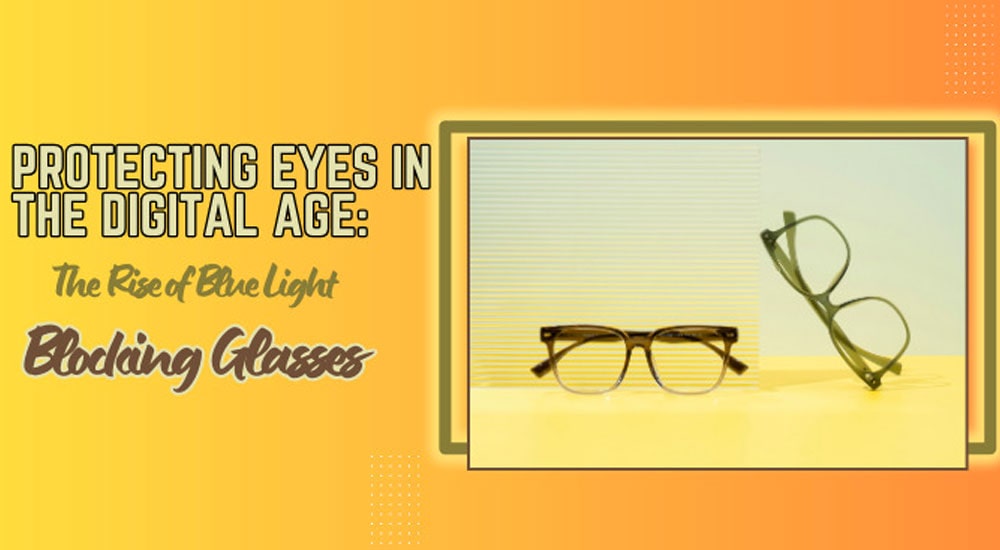
In today’s hyper-connected world, screens dominate nearly every aspect of our lives. Digital devices have become essential tools for work, education, and entertainment, from smartphones and laptops to televisions and tablets. However, as screen time has surged, so have concerns about its impact on eye health. One particular concern is exposure to blue light—a high-energy visible light emitted by digital screens. In response, eyewear has emerged as a popular solution, promising to protect our eyes in the digital age.
What Is Blue Light?
Blue light is part of the visible light spectrum, sitting between ultraviolet (UV) and green light. While blue light is naturally emitted by the sun and plays a role in regulating our circadian rhythm (the sleep-wake cycle), excessive exposure, especially during evening hours—from artificial sources like screens can disrupt sleep patterns and potentially strain the eyes.
The Problem with Prolonged Screen Time
Extended exposure to digital screens has been linked to digital eye strain (also known as computer vision syndrome). Common symptoms include:
-
Dry eyes
-
Blurred vision
-
Headaches
-
Difficulty focusing
-
Disrupted sleep
While more research is still being conducted, early studies suggest that blue light may contribute to this discomfort by penetrating deep into the eye and potentially damaging the retina over time.
The Rise of Blue Light Blocking Glasses
In recent years, blue light glasses have surged in popularity. These glasses are specially designed with lenses that filter out or absorb blue light, either through a visible yellow/orange tint or with clear coatings that reflect blue wavelengths.
Benefits of Blue Light Glasses
-
Reduced Eye Strain: Users often report less fatigue and discomfort after long periods on screens.
-
Improved Sleep: By blocking blue light, particularly in the evening, these glasses help preserve melatonin levels and support better sleep quality.
-
Enhanced Visual Comfort: Some lenses offer added contrast and sharpness, improving clarity and reducing glare from digital screens.
-
Preventive Eye Care: While definitive long-term studies are ongoing, many eye care professionals recommend blue light lenses as a proactive measure, especially for heavy device users.
Who Should Use Them?
Blue light blocking glasses can benefit a broad range of individuals, including:
-
Office workers who spend most of their day on computers
-
Students engaged in remote or online learning
-
Gamers and digital content creators
-
Anyone who uses smartphones or tablets for extended periods, especially at night
Tips for Better Eye Health in the Digital Era
While blue light glasses can help, they’re just one part of a comprehensive approach to digital eye health:
-
Follow the 20-20-20 rule: Every 20 minutes, look at something 20 feet away for at least 20 seconds.
-
Adjust screen settings: Lower brightness, use night mode, and increase text size to reduce strain.
-
Maintain proper posture: Ensure your screen is at eye level and about an arm’s length away.
-
Stay hydrated: Blink often and consider using artificial tears to combat dryness.
Final Thoughts
As our lives become increasingly digital, it's important to be mindful of the impact technology can have on our health. Aisen Optical offers a practical, stylish, and accessible way to help protect our eyes in a screen-heavy world. Whether you’re working late into the night or binge-watching your favorite series, these glasses can provide an added layer of comfort and protection in the digital age.





